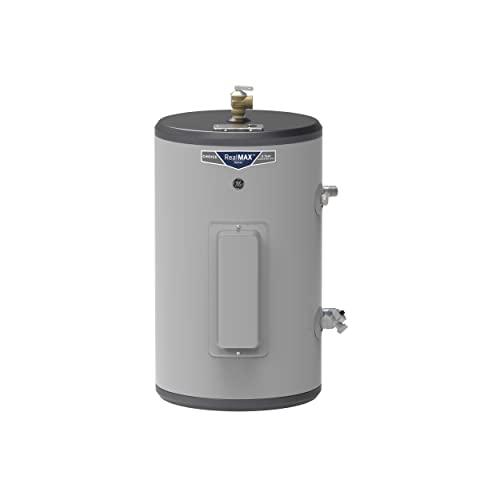It may be done by a plumber, and correct, but the pipe hangers just hurt my ocd eyes.I can tell you that everything has been done by a licensed plumber, and has passed inspection.
You are using an out of date browser. It may not display this or other websites correctly.
You should upgrade or use an alternative browser.
You should upgrade or use an alternative browser.
Natural Gas Requirements: Generator and Water Heater Together
- Thread starter Mitchell-DIY-Guy
- Start date

Help Support Plumbing Forums:
This site may earn a commission from merchant affiliate
links, including eBay, Amazon, and others.
Copper gas line ? Usually it's black pipe. Wonder why copper ?
Copper is cheaper and easier to install. It’s better functionally in some ways, in some ways it’s not.Copper gas line ? Usually it's black pipe. Wonder why copper ?
All I can say is that you have done what myself and many others here want to do at our homes. There is not much information out there with detailed information which you have provided, and I really appreciate it.
Mitchell-DIY-Guy
Well-Known Member
I get it but cannot tell you why there are so many regulators in the crawl space of my home. That's just the way they do things here I guess.I understand the gas system you have and I chose to locate the regulator outside for outside equipment it’s serving. If it malfunctions it’s outside and they do malfunction. It has a vent limiter built into the regulator. Incase if over pressure the vent relieves the gas to the surrounding atmosphere. It’s best if that gas is vented outside rather than inside. In some locations around the country it would be required the vent on the regulator be piped outside……
The regulator must be installed in the horizontal upright position for the vent limiter to do it’s job. It’s a ball bearing captured in the vent assembly that gets blown into the limiting position by the gas that’s venting.
When I first bought my car wash in 2001, it had two 500K BTU heaters, both atmospheric 80% efficient Raypaks. One was for the floor heat (de-icing) and the other for indirect hot water with an 80 gallon tank. For reasons that I don't understand, anything above 200K BTU is considered a boiler and subject to an entirely different set of rules, and state as opposed to local inspection. There's no pressure in these and the temperature of the water they heat is way below boiling.
When I upgraded to a touchless automatic, it required much more hot water, so the water heater "boiler" was removed and a larger 1.2M Raypak was installed. There was a lot of plumbing work involved, most of it with 2" copper. Unbeknownst to me, the plumbing subcontractor to the car wash equipment supplier failed to get it inspected by the state. One day, when I was in the equipment room with the door open, a state boiler inspector drove by, all gruff, and asked where is my boiler tag? I had no idea what he was talking about. Called back the plumber, and one of the many things they had to do was install a vent line from the regulator to the outdoors. This was not on the other gas appliances in the equipment room, just the big-*** boiler.
Guess it had to do with size. Inspector didn't care about the other old boiler.
Mitchell-DIY-Guy
Well-Known Member
First licensed plumber I called out really didn't want the [gas line] job...didn't feel comfortable looking up gas pressure/consumption data, etc. necessary to do this right. Second guy was all over it, and did it in a cost effective manner.All I can say is that you have done what myself and many others here want to do at our homes. There is not much information out there with detailed information which you have provided, and I really appreciate it.
I like to do a lot of research before devising a good solution. For example, when I had that car wash years ago, one of the features was an insulated trough in the attic that carried the soap and water lines from the utility room to the five bays. When I did my renovations, they wanted to put in a heater to keep the trough warm. I said, "wait one minute! I have one 500K BTU heater here, and another 1.2M BTU heater here, why do I need a third?" So that got the plumber thinking and he instead got a tiny plate heat exchanger (measures about 3 x 6 x 1 INCHES, took a tap off the hot water line, and circulated that through the heat exchanger instead. Didn't need another heater.
In another situation there, I was losing one leg of my three phase power regularly. When that happened, I'd lose the contactor coil on my compressor ($50 each), and the vacuums would take money but not turn on. The worst thing you can do in a car wash is take peoples money and not deliver the service. They'll cause a $1000 worth of damage because they lost a quarter--no fooling. So, I sat down with my brilliant tech, and we designed a system using a "three phase detector" that would immediately shut down EVERYTHING if we lost one leg of three phase. Other parts of the equipment would then send me a text message...
Every technical problem has a solution. You just have to find it.

$339.00
$380.47
EcoSmart ECO 18 Electric Tankless Water Heater, 18 KW at 240 Volts with Patented Self Modulating Technology , 17 x 14 x 3.5, White
PEACHSTATESTEALSANDDEALS

$226.38
$251.00
BOSCH Electric Mini-Tank Water Heater Tronic 3000 T 4-Gallon (ES4) - Eliminate Time for Hot Water - Shelf, Wall or Floor Mounted
Amazon.com

$189.99
$299.00
EcoSmart ECO 11 Electric Tankless Water Heater, 13KW at 240 Volts with Patented Self Modulating Technology
Amazon.com









